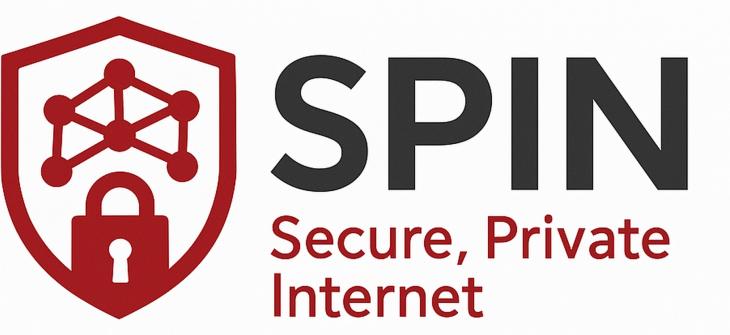SPIN Research Group Earns Recognition for Work on Internet Freedom
Content

The Secure, Private Internet (SPIN) Research Group, led by UMass Amherst Manning College of Information and Computer Sciences (CICS) Professor Amir Houmansadr, is earning widespread recognition for work on censorship resistance and internet freedom.
2025 FOCI Best Practical Paper Award
SPIN researchers received the 2025 Best Practical Paper Award from the Free and Open Communications on the Internet (FOCI) Community, for their paper “Wallbleed: A Memory Disclosure Vulnerability in the Great Firewall of China.” The award recognizes a single paper each year on internet censorship, across all cybersecurity conferences, that demonstrates the most significant real-world impact in advancing internet freedom.
“Wallbleed” reveals a previously unknown weakness in the Great Firewall of China, the massive nationwide system used to monitor and block online communications. The researchers discovered that the firewall inadvertently leaks small fragments of its internal memory when processing certain types of internet traffic. By carefully designing traffic that interacts with the firewall, the team was able to trigger and capture these leaks, a process similar to “bleeding” information out of the system.
This vulnerability is significant for two reasons. First, the leaked data exposes sensitive details about the inner architecture of the firewall, including the software modules and rules it uses to inspect and block traffic. Such information is rarely accessible, given the opaque and tightly controlled nature of state censorship systems. Second, by studying the leaked data, researchers and developers can design more effective censorship circumvention tools, ultimately helping users bypass restrictions and communicate freely online.
The findings not only advance academic understanding of one of the world’s most complex surveillance infrastructures but also carry direct implications for journalists, activists, and everyday internet users in censored regions.
“This work goes beyond measuring what the Great Firewall blocks. By uncovering and exploiting a memory disclosure flaw — Wallbleed — we expose how censorship infrastructure itself can leak sensitive user and system data,” said Houmansadr. “That insight not only improves our technical understanding of censorship systems’ internals, but also raises the bar for how we think about privacy and accountability in deployed filtering — reminding us that censorship devices, when implemented poorly, can pose direct security and confidentiality risks to users.”
2025 USENIX Security Symposium Best Paper Honorable Mention
A paper from the SPIN research group led by CICS graduate student Ali Zohaib received an honorable mention for Best Paper at the 2025 USENIX Security Symposium. Titled “Exposing and Circumventing SNI-based QUIC Censorship of the Great Firewall of China,” the paper examines how censors exploit Server Name Indication (SNI) data within the QUIC protocol to block encrypted traffic. Although QUIC is a modern internet protocol designed to make connections faster and more secure, it still reveals small pieces of metadata, such as the domain name a user is visiting, making it a target for censorship systems like the Great Firewall of China.
SNI, the small snippet of information transmitted at the start of an internet connection that identifies a requested website, is particularly vulnerable to this kind of exploitation. Zohaib and collaborators not only dissected how this censorship occurs, but also proposed techniques to circumvent it, marking an important advance toward preserving the openness and accessibility of modern web technologies under restrictive circumstances.
2025 Caspar Bowden Privacy Enhancing Technologies Award Runner-Up
Work led by SPIN graduate student Mingshi Wu (pseudonym) was recognized as a runner-up for the 2025 Caspar Bowden Privacy Enhancing Technologies (PET) Award, one of the most prestigious honors in the privacy research community.
The paper, titled “How the Great Firewall of China Detects and Blocks Fully Encrypted Traffic,” has earned multiple accolades to date, including the 2024 Applied Networking Research Prize, first place at CSAW 2023’s Applied Research Competition, and the FOCI 2023 Best Practical Paper Award. By uncovering how the Great Firewall identifies and obstructs fully encrypted communications, the study has helped shape ongoing technical and policy discussions surrounding online privacy and digital freedom.
“I’m proud of our SPIN graduate students whose leadership and dedication are shaping the future of internet freedom,” said Houmansadr.
